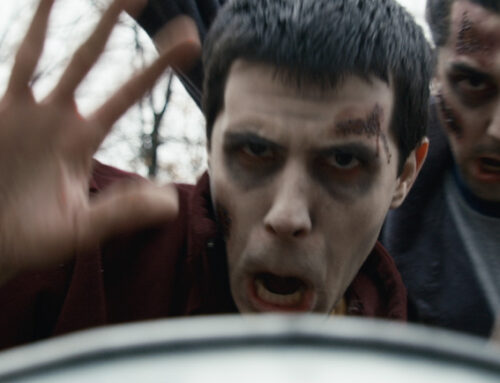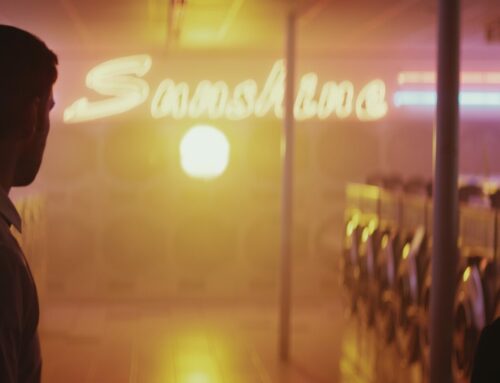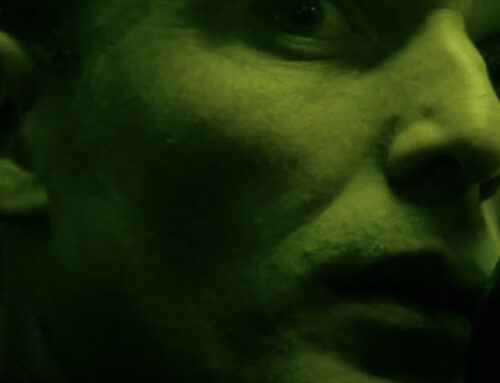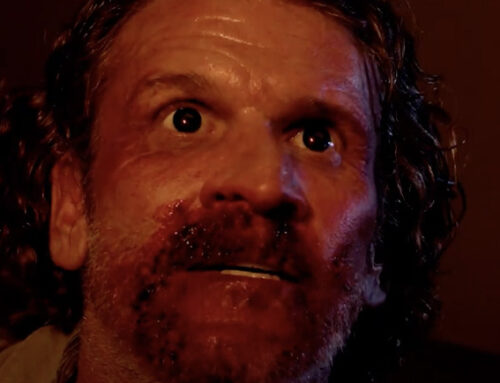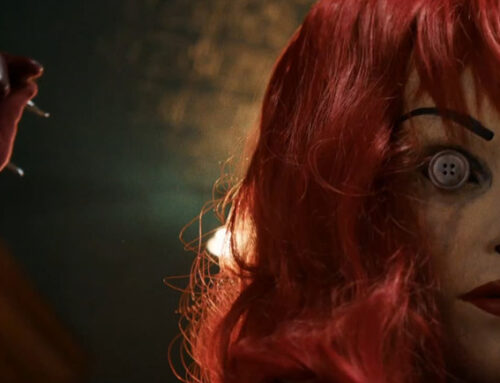I don’t speak German or Flemish and my French is limited, to say the least. With very few exceptions I find subtitles extremely distracting. But, being dedicated to my cause, I focused my myopic gaze and vowed to treat Human Factors as fairly as I would any other movie, eye strain or not.
Nina (Sabine Timoteo) and Jan (Mark Waschke) take their kids Emma (Jule Hermann) and little Max (Wanja Valentin Kube) off to their Belgian seaside holiday home for the weekend. The whole family is uptight and disjointed, especially Nina and Jan, between whom there’s a definite air of uncomfiness.
Once there, Jan’s off shopping when an odd home invasion takes place. We arrive back with him, just in time to miss it. Nobody seems to make too much of a fuss, except Max, whose pet rat does a runner. A lone policeman shows up, scribbles some notes, and is gone again in a blink. There’s talk of going home tomorrow but whether this happens or not is unclear at first.
Cut to Jan in what can only be a business meeting, where something big and political that involves his and Nina’s work as directors of an advertising agency is afoot. Then we’re on the shop floor of said agency when the building is attacked (with mysterious flying green stuff hitting the windows), leading to talk of stage workers at a festival being responsible.
NOW we’re back where we came in, with the family arriving at the holiday home. Yet again the invasion takes place (of which we see little), except this time the two kids go swimming the next morning from a bleak, windswept shore where nobody else is mad enough to be.
Still with me?
Arriving home, they’ve got visitors in the shape of big brother Flo (yes, Flo), and his friend Alexander. Max finds his rat, dead, under a bush. Now you’ve read the above, repeat multiple times from a variety of angles and perspectives (even the rat’s) with sunglasses on and the lights off and you pretty much have the measure of this political family drama.
Thinking about it, I can kind of see what director Ronny Trocker was trying to get at here. The break-in seems to be the catalyst for the shifting dynamics of a family who’ve each been busy sitting on their feelings of resentment whilst trying to upkeep a public image to the contrary for too long. Nina appears to feel stifled and controlled by Jan and the agency and when he makes a critical decision behind her back (the political element, we later discover), it’s the final straw, triggering a small but powerful rebellion. The teen Emma is bursting with all the usual angst, and desire for independence also; however her character doesn’t get enough air time to develop enough, which is a pity as if it had, the film could’ve been far more interesting than it turned out to be.
What could’ve been an insight into the internal struggles of cosmopolitan family life was horribly complicated by the non-linear plot switching between pre and post break-in, and the baffling, ever-changing perspective, not helped by the drab cinematography which made it almost impossible to see what was happening in most of the scenes.
A scant few hectic moments served to snap my wandering attention back, but it wasn’t enough, and overall I found Human Factors boring, dreary, and rather depressing; not to mention thoroughly confusing. Most of us are up for a film that leaves a few questions for us to pore over, but this doesn’t work when the overriding emotion it leaves behind is complete bewilderment.
2 out of 10 Befuddling Belgian Waffles
| Human Factors | ||
| RATING: | NR |
Human Factors | Official Trailer | Berlinale 2021 |
| Runtime: | 1 Hr. 42 Mins. | |
| Directed By: | ||
| Written By: | ||


